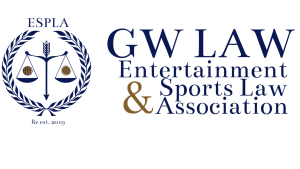Currently, a circuit split between the Federal Circuit and the Ninth Circuit exists over a matter of digital copyright protection. The Federal Circuit has interpreted DMCA §1201 to require a nexus between copyright infringement and access in order to prove circumvention.[1] The Ninth Circuit directly contradicts the Federal Circuit’s finding by eliminating the nexus requirement completely, essentially creating a positive right of access for copyright owners.[2]
In 2004, the Federal Circuit heard argument in Chamberlain Group, Inc. v. Skylink Techs. Inc.[3] Chamberlain manufactured garage door opening systems that utilized a copyrighted computer program that changed the code required to open the door frequently.[4] Skylink created a handheld garage door opener device that was capable of identifying Chamberlain’s “rolling code,” by using Chamberlain’s original source code.[5] Chamberlain brought suit alleging that Skylink’s device circumvented Chamberlain’s copyrighted access control measure.[6] Chamberlain, in order to prevail, thus had to prove that Skylink’s access was unauthorized.[7] The Federal Circuit found for Skylink, stating that the burden of proving access rested on the Plaintiff.[8]
In 2010, the 9th Circuit heard argument on appeal in MDY Indus., LLC v. Blizzard Entm’t, Inc.[9] Blizzard is the creator of the vastly successful online game World of Warcraft (“WoW”).[10] Certain advances can be made in the game through in-game purchases of additional tools, money, and power-ups, using real currency.[11] MDY Industries, owned by Michael Donnelly, created a software “bot” that helped players advance quicker and acquire more in-game advantages in WoW, essentially giving players an advantage in power-up and in-game currency collection without paying real world dollars.[12] The Ninth Circuit upheld the trial Court’s finding of violations of DMCA §1201, and stated in part, “imposing an infringement nexus requirement… would… disregard the plain language of the statute.”[13]
So, what is there to do? Absent Congressional or Supreme Court action, there are two options for reparation of this circuit split by the Federal Circuit. The first would be to hear a case under similar facts en banc, or to hear a case under similar facts and consider postdated rulings with “sound reason” in the alternative.[14] The most affirmative and effective solution would be Congressional intervention, but this is a long and arduous process. It would be in the best interest of rights holders, and would encourage innovation and creativity, if Congress carved out an exception for circumvention to access a work for their own purposes that an individual already has the right to access or use. This would prevent absurd results. Under this amendment, users who have rightfully licensed or purchased a work may use it in any way that they please for their own, private purposes, much as tangible art is permitted to be used, but those who access works without permission can be legally liable in order to protect undue exploitation of an author’s works.
Yet another avenue for reparation of this split lies within the text of the statute itself. §1201(a)(1)(c) charges the Librarian of Congress to take on rulemaking proceedings every three years, specifically related to “the availability for use of copyrighted works,” and “such other factors as the Librarian considers appropriate.”[15] The last rulemaking year was 2021, and the Librarian adopted certain exemptions that protected to an extent the fair use availability for some works.[16]
Overall, there are many avenues that could resolve this split. All that is necessary is the wherewithal of Congress or the right facts to turn the tide of the Federal Circuit’s opinion.
[1] See Chamberlain Grp., Inc. v. Skylink Techs., Inc., 381 F.3d 1178, 1243 (Fed. Cir. 2004). Chamberlain came to be heard by the Federal Circuit because the nature of the initial claim included both a patent and a DMCA copyright issue. The trial court granted summary judgment in favor of Skylink on the DMCA issue, and Chamberlain appealed to the Federal Circuit.
[2] See MDY Indus., LLC v. Blizzard Entm’t, Inc., 629 F.3d 928, 950 (9th Cir. 2010).
[3] See Chamberlain Group, Inc., 381 F.3d at 1178.
[4] See id. at 1183.
[5] See id.
[6] See id.
[7] See 17 U.S.C. §1201 (2021).
[8] See Chamberlain Group, Inc., 381 F.3d at 1193.
[9] See MDY Indus., LLC, 629 F.3d at 928.
[10] See id. at 934.
[11] See New to WoW, World of Warcraft, https://worldofwarcraft.com/en-us/start (last visited Jan. 24, 2022).
[12] See MDY Indus., LLC, 629 F.3d at 936.
[13] Id. at 950.
[14] See United States v. Barbosa, 896 F.3d 60, 74 (1st Cir. 2018).
[15] 17 U.S.C. §1201 (2021).
[16] See Exemption to Prohibition on Circumvention of Copyright Protection Systems for Access Control Technologies, 86 Fed. Reg. 59,627 (Oct. 28, 2021).

